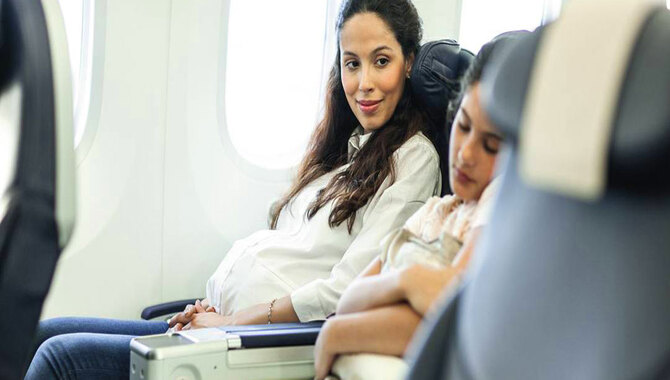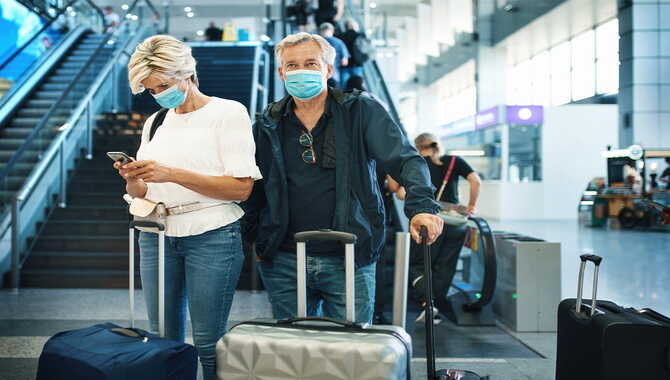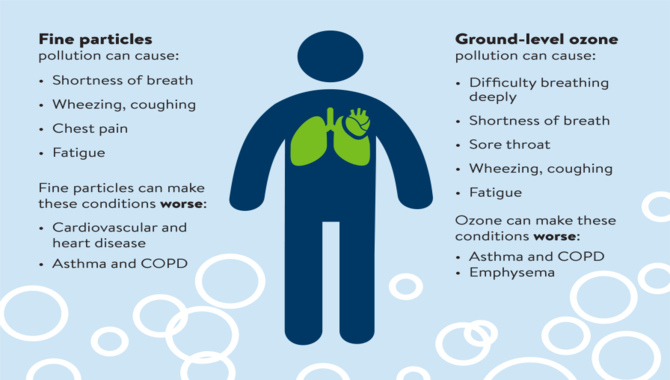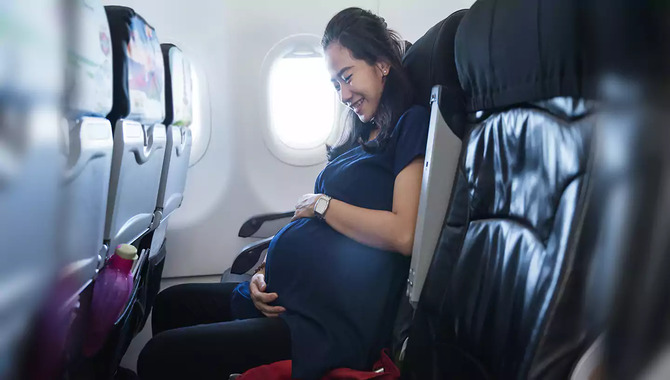Flying is a convenient way to travel. It’s fast and efficient. But it comes with lots of risks, especially if you’re pregnant.
Flying during pregnancy is a tricky balancing act. You don’t want to endanger your baby, but you also don’t want to miss out on your trip’s fun. Airlines are one of the most common ways people travel during pregnancy and for a good reason.
Flying is safe and comfortable, and it’s easy to get around when you’re pregnant—however, a few things to remember before traveling by air during your pregnancy. There are restrictions, guidelines, and precautions to follow while flying during pregnancy. Here, we’ll cover all the vital information you need to keep in mind when planning for pregnancy travel by plane.

Is It Ok To Travel By Plane During Pregnancy?

Yes, it is safe to travel by air during pregnancy. However, pregnant women should consult their doctors before traveling due to the increased risk of complications. It is important to be aware of the risks associated with air travel during pregnancy and stay vigilant about any issues that may arise.
It’s a good idea to consider the weather conditions when traveling by air and ensure dressing properly for the temperature of the flight. Also, take all necessary precautions to stay safe while flying during your pregnancy.
Ideally, pregnant women should limit their exposure to air pollution and avoid air travel when they are sensitive to airborne chemicals. Also, make sure to pack a bag full of medications and supplies in an emergency. However, traveling by plane can be an enjoyable and exciting experience if you are well-prepared and mindful of the safety precautions.
Things To Consider For Pregnancy Travel By Plane

It’s important to consult your doctor before traveling during pregnancy. This ensures you and your baby are healthy and safe. It’s vital to keep a close eye on your health while traveling. If you experience any symptoms, such as fatigue, nausea, vomiting, or diarrhea, let a flight attendant know immediately. This will help them provide the best care for you and your baby.
When traveling by plane, packing basic medical supplies in an emergency is essential. It’s also vital to be aware of airline guidelines regarding pregnancy travel. Make sure that you follow the airline’s recommendations regarding seat size, weight restrictions, and luggage size limits. By following these tips and precautions, you can ensure a safe and enjoyable trip during pregnancy travel by plane trip. Scroll down for details.
1. Get Expert Advice Before You Fly

To ensure the safety of pregnant women while flying, they must consult with their doctor and follow any recommendations. Some airlines may allow pregnant women to fly earlier in their pregnancy, while others require a doctor’s note. Pregnant women should also avoid potential health risks, such as large crowds or air travel during the night or early morning.
Consider consulting a travel health expert to make the most of your pregnancy travel experience. They can advise how to stay safe and comfortable during your flight and help you plan for safe, effective travel during your pregnancy.
2. Bring The Essentials – Including Your Doctor’s Prescription

You are certainly entitled to enjoy traveling during pregnancy. However, there are certain precautions you must take when flying. For example, ensure you bring all the essentials, including your doctor’s prescription. Also, be aware of the health risks associated with traveling during pregnancy, including exposure to infection.
Remember to follow all the guidelines for travel during pregnancy to minimize your risk of exposure to such risks. Besides, pack a healthy meal and snacks to energize you on long flights. Finally, pack a comfortable sleeping bag and pillow to ensure a restful flight.
3. Be Aware Of Altitude Sickness Warnings
Pregnant women are more susceptible to altitude sickness, so it is important to know any warnings that may apply to your destination. The most common symptoms of altitude sickness include shortness of breath, chest pain, and dizziness. If you experience these symptoms while traveling, it’s best to seek immediate medical help. Additionally, it’s important to avoid alcohol and stay hydrated while traveling.
It’s also a good idea to pack a travel pillow and wear comfortable shoes if you’re planning on traveling during your pregnancy. Remember to take care of yourself and eat well while traveling; it will help you cope with the stresses of traveling during pregnancy.
4. Avoid Air Quality Issues

Air quality issues are common during pregnancy and can seriously impact your health. Exposure to air pollution during pregnancy has been linked to various health problems, including miscarriage, premature birth, and reduced fertility. Due to this risk, pregnant women must take precautions to avoid these issues. One of the best ways to avoid air quality issues is to stay informed about current conditions at the airport.
It’s important to regularly check the airline’s website for updates on air quality conditions. In addition, it is always good practice to follow the instructions of the airport staff if there are any special instructions related to air quality. Additionally, it is wise for pregnant women to wear masks if they experience respiratory problems.
5. Pregnant Women Should Avoid Traveling On Long-Haul Flights

Pregnant women need to avoid long-haul flights if possible. Long-haul flights can be very uncomfortable for pregnant women and may lead to health complications, such as fatigue, back pain, or anxiety. Pregnant women should consult with their doctor before traveling to ensure the safety of both themselves and their unborn child. It’s always best to be safe than sorry when it comes to safety during pregnancy.
6. Consult A Doctor Before Travelling For Any Medical Condition

It’s vital to consult a doctor before traveling for any medical condition. If you are pregnant and planning a trip, it is wise to consult a doctor before traveling. Consider packing a travel health kit with you that contains any medications or supplements you may need during your trip.
Additionally, inform the airline of any health issues that you may have. Always follow safety instructions provided by the airline and make sure to bring enough medication for the trip as well as copies of your medical records. Finally, pack a copy of your medical records in case of an emergency.
7. Pack Safe Travel Essentials

Pregnancy travel by air poses unique safety challenges. It’s important to consider a number of safe travel essentials to prepare for this. First and foremost, make a list of the essentials you need for your trip, including medications and vital documents. Next, pack them in a sturdy container.
Pack your medication in a safe place and check with your doctor before traveling if you are taking any medications that may interact with air travel. Finally, follow the airline’s packing guidelines and bring enough money for your trip. Safe pregnancy travel by air demands thoughtful preparation and attention to detail.
8. Know The Health & Safety Guidelines For Flying During Pregnancy

Flying during pregnancy is associated with a higher risk of complications like pregnancy-induced hypertension (high blood pressure), miscarriage, and fetal defects. Flying during pregnancy is a risky business. There are a number of health and safety issues to consider, not the least of which is the risk of developing congenital disabilities in your child if you’re pregnant when you fly. Here are some additional tips to help make flying safe for you and your unborn child:
- Before you go anywhere, please consult with your doctor about whether or not it’s safe for you to travel. They can give you advice on how best to prepare for the trip, including restrictions on what foods or drinks you should consume while onboard.
- Always use contraception while traveling – this includes both condoms and oral contraceptives (the latter of which may be more effective when taken aboard flights).
- Avoid smoking cigarettes and using other tobacco products when traveling – both smoke particles and toxins are inhaled through breathing air, so they’re especially dangerous during flight.
- Drink plenty of fluids before boarding the plane – dehydration can increase blood pressure levels significantly in pregnant women, increasing their risk of delivering prematurely or suffering from labor complications later on. Make sure to pack enough food along with your drink bottles so that you don’t have to worry about going hungry during long flights.
Similarly, if you’re traveling by air during the first trimester of pregnancy, it’s important to follow the guidance of your doctor or midwife. This includes avoiding potential risks such as long flights and sitting for long periods of time. Additionally, you should be aware that flying can increase your heart rate and cause nausea and vomiting. So be mindful of your body’s signals and try to rest when possible.
Conclusion
Traveling during pregnancy is an exciting and life-changing experience. However, safe traveling is a priority. A few simple precautions can help you enjoy your trip while minimizing the risk of unexpected complications. Besides following travel safety guidelines, packing essential items such as water, food, and medicine, seeking advice from a doctor or midwife before traveling, and keeping in contact with family and friends are some of the most important things to do.
When it comes to traveling, the second trimester is always challenging. You will have a lot of health issues and may be uncomfortable when you sit or stand too long. Knowing how to take care of your body and mind during this time can make your trip more fun and exciting.
As this article has mentioned, you can plan your pregnancy travel with extra care and caution. This way, you won’t have any issues while traveling by air or by bus as long as you are well-prepared. Getting all the right advice before you start traveling can also save you from unwanted situations in the future.
Frequently Asked Questions
1.Is It Safe To Fly During Pregnancy?
Ans: There is no definitive answer to the question of whether or not flying during pregnancy is safe. However, pregnant women should consult with their healthcare professional before traveling. Some airlines have stricter safety guidelines than others when it comes to flying during pregnancy, and it is always important to take caution when traveling, no matter what stage of your pregnancy you are in.
2.What Should I Do If I Experience Any Problems While Traveling By Plane?
Ans: If you experience any problems while traveling by plane, the best thing to do is to contact your airline. Airlines have procedures in place for such cases, and usually, it’s just a matter of following their instructions. Oftentimes, all that’s required is for you to file a report with the airline, and they will take care of the rest.
3.What Should I Do If I Experience Any Medical Emergencies While Traveling By Plane?
Ans: If you experience a medical emergency while traveling by plane, the best thing to do is immediately alert the flight crew. This will allow them to take appropriate measures to ensure your safety and well-being. If you are unable to speak or move due to a medical emergency, try to signal to the flight crew that you require assistance. If you are able to speak and reach out for help, tell the flight crew your name, address, and contact information.
4.Should I Avoid Flying During My Second Trimester?
Ans: There is no definite answer to whether or not pregnant women should avoid flying during their second trimester. Some doctors believe that exposure to air travel during this time may be harmful to the development of the baby. It is up to each individual pregnant woman to decide whether or not they want to fly.
5.How Do You Make Sure Your Pregnant Baby Is Safe While Traveling By Plane?
Ans: There is no guarantee that traveling by plane will always be safe for your baby, but there are a few tips you can follow to make sure they stay safe. First and foremost, be aware of the symptoms of air-travel sickness – generally, these include a headache, nausea, and dizziness. If you experience any of these symptoms during your flight, try to rest as much as possible and avoid eating or drinking anything that makes you feel sick.

Leave a Reply